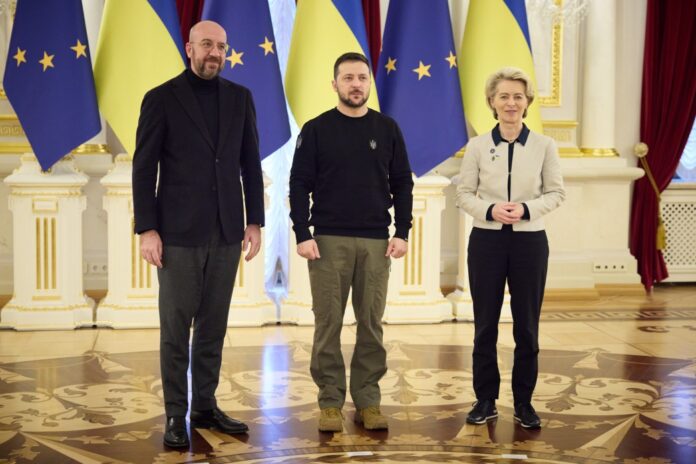It’s springtime in Brussels and the European Union has a spring in its step. Its leaders and institutions have been galvanised by the war in Ukraine. ‘The war has reminded us what Europe is really about,’ people kept telling me on a recent visit to the EU’s capital.
There’s a popular theory that says European integration advances through crises. The truth is that sometimes it does and sometimes it doesn’t. You’d have to be a starry-eyed Euro-optimist, for example, to claim that European unity was really advanced by the 2015/16 refugee crisis.
But in its last two big ones, the Covid pandemic and the war in Ukraine, we have seen the ‘challenge and response’ mechanism that the historian Arnold Toynbee identified as one of the patterns of history.
After a slow start, and an initial sharp reversion to unilateral national actions, the EU responded to the economic consequences of the Covid pandemic with a bold leap forward: more than €750 billion of recovery funding for member states, branded NextGenerationEU. Two long-standing north European taboos were felled at once.
There was now shared European debt and much of the money would be distributed in the form of grants, not just loans, to hard-hit countries such as Italy. European leaders finally did what they should have done a decade before, reacting to the Eurozone crisis that first became acute in 2010.
Even more remarkable has been the response to the war in Ukraine. Despite the best efforts of rogue nationalists such as Hungary’s Viktor Orbán, European solidarity has been maintained through ten rounds of tightening economic sanctions on Russia. Ukrainian refugees have been made welcome across the bloc, putting to shame Britain’s niggardly, obstructionist visa procedures. After another slow start – slow starts are what you get with a still substantially intergovernmental community of 27 different states – the EU is giving €18 billion of economic support to Ukraine this year.
Not only have many individual member states offered impressive levels of military support to Ukraine. In a move that would have been unthinkable before Vladimir Putin‘s full-scale invasion of Ukraine on 24 February 2022, something called the European Peace Facility is now being used to commission large-scale purchases of arms and ammunition for the Ukrainian armed forces, whose major counteroffensive is to be expected in the next few weeks.
Source : Voxeurop

